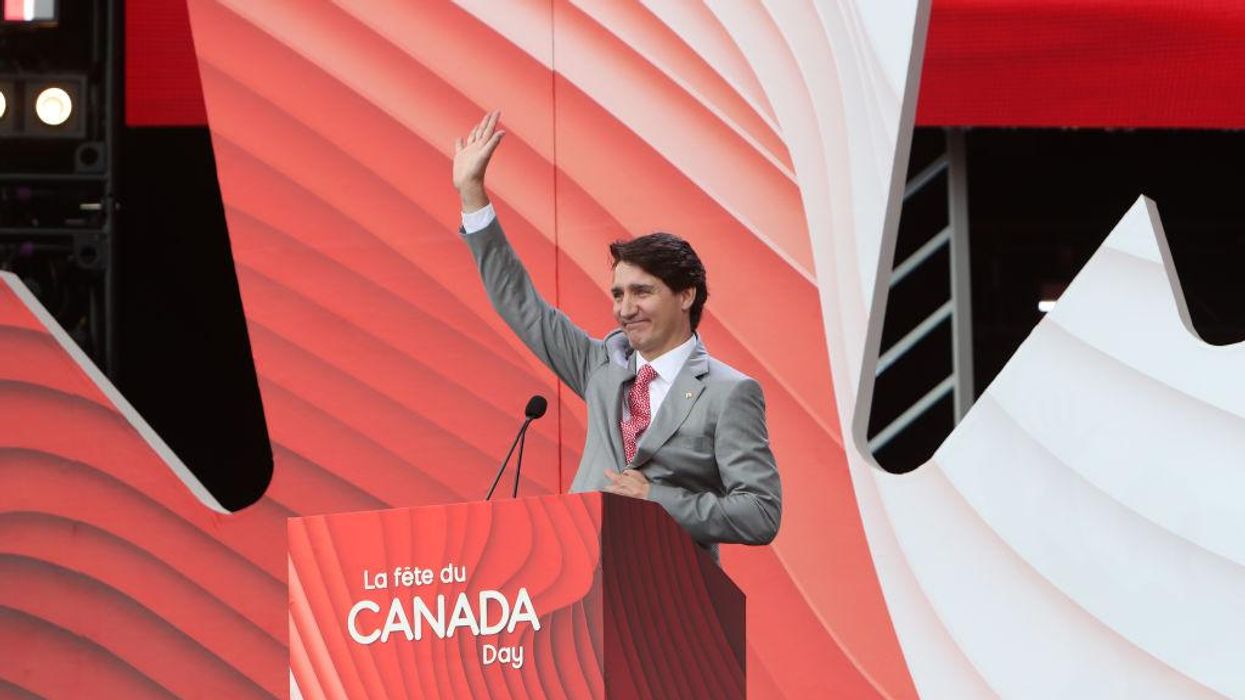
David Kawai/Bloomberg via Getty Images

Political leaders in Canada are moving forward with plans to impose further restrictions on online free speech.
They have assembled an "expert advisory group" to develop so-called "online harm" bills which will hold online service providers "responsible for addressing harmful content on their platforms and creating a safe online space that protects all Canadians," according to the government's website.
However, others worry that the Canadian government is stoking fears regarding hate speech, child exploitation, the sharing of non-consensual images, incitements to violence, and terrorism — all of which are already illegal — to pass sweeping restrictions against free speech that the government just doesn't like.
Douglas Blair, an American writing for the Daily Signal, warns that Canadian Prime Minister Justin Trudeau's "brand of authoritarian speech-policing" may soon metastasize in the U.S. Citing Trudeau's stringent crackdown on the truckers of the Freedom Convoy, who were protesting continued government shutdowns earlier this year, Blair claims that elites in both Canada and America "will ruthlessly enforce orthodoxy toward leftist positions and accuse peaceful protests against them as hateful."
Still, despite dire warnings from Blair and others, many say that a sizeable majority of Canadians favor heavy restrictions on "hate speech" and "disinformation." A recent poll from the Canadian Race Relations Foundation claims that almost 80% of Canadians want social media companies to remove "hateful" and/or "racist" messages posted to their platforms.
"Exaggerated concerns that regulations will erode our constitutional freedoms are misplaced and out of step with what Canadians have repeatedly made clear: Hate speech has no place in our democratic society," said Mohammed Hashim, Executive Director of the CRRF, according to CBN.
To demonstrate the supposed danger posed by unfettered free speech, many have pointed to a recent incident in Alberta in which an unidentified man followed Deputy Prime Minister Chrystia Freeland into an elevator and hurled obscenities at her and called her a traitor. Though the man's actions have been condemned by leaders on both sides of the aisle, some believe that those in power plan to use this example of unsavory speech as an excuse to censor the opposition more generally.
Peter Menzies of the Macdonald-Laurier Institute recently said that Canada is "poised to become a global leader in restricting online speech and meddling with news media" and that Canadians "will be soon communicating only in manners of which their government approves," even as leaders insist that the "online harm" bills will operate "within the parameters of the Canadian Charter of Rights and Freedoms."
Regardless of intent, the "online bills" have since stalled in the legislative process, and some now say that a formalized bill won't be introduced until early 2023 at the earliest.